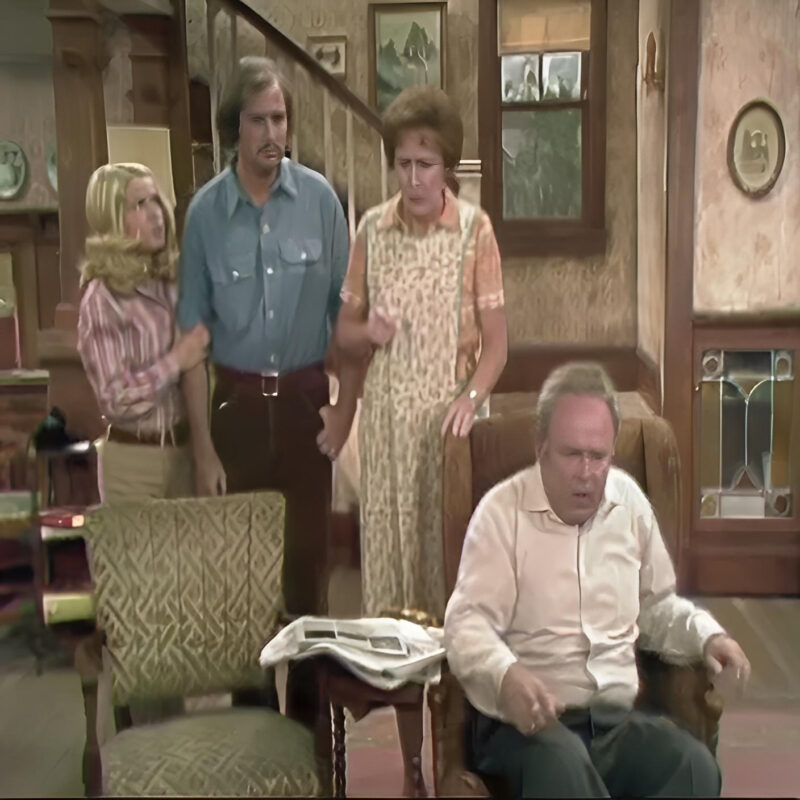
Bobby Seale, co-founder of the Black Panther Party and a prominent figure in the Civil Rights Movement, has provided a compelling critique of the television show “All in the Family” and its use of comedy to address social issues. Seale’s perspective offers valuable insights into the intersection of entertainment and activism, highlighting both the potential and limitations of using humor as a tool for social change.
“All in the Family,” created by Norman Lear and first aired in 1971, broke new ground by bringing contentious social issues such as racism, sexism, and homophobia into the living rooms of American viewers. The show centered around Archie Bunker, a bigoted, working-class man whose outdated views often clashed with the evolving social norms of the time. While the character of Archie was intended to satirize prejudice, Seale’s critique suggests that the show’s comedic approach might have undermined its potential for activism.
Seale acknowledged that “All in the Family” had a significant impact by making conversations about prejudice and discrimination more mainstream. “The show brought the ugliness of bigotry to the forefront,” Seale stated. “It made people laugh, but it also made them think about the prejudices they encountered in their daily lives.” This dual effect of entertainment and awareness was a notable achievement, as it encouraged viewers to reflect on their own biases and the societal norms they upheld.
However, Seale was critical of the way the show used comedy to address serious social issues. He believed that humor, while effective in grabbing attention, could also dilute the seriousness of the topics being discussed. “Comedy can make us comfortable with uncomfortable truths,” Seale argued. “But it can also make us complacent, thinking that recognizing prejudice is enough, rather than pushing us to take action against it.” By laughing at Archie’s bigotry, viewers might have felt a sense of moral superiority without feeling compelled to challenge the systemic structures that perpetuated discrimination.
Seale also pointed out that “All in the Family” primarily presented issues from the perspective of a white, working-class family. This limited viewpoint, he argued, failed to capture the full complexity and severity of the struggles faced by marginalized communities. “The show gave us a glimpse into the mind of a bigot,” Seale said, “but it didn’t fully explore the impact of that bigotry on the lives of those who suffer from it.” He believed that true activism required a deeper engagement with the voices and experiences of those directly affected by social injustices.
Moreover, Seale emphasized the importance of intersectionality in understanding and addressing social issues. While “All in the Family” tackled various forms of prejudice, it often treated them as separate issues rather than interconnected facets of a broader system of oppression. “Racism, sexism, economic inequality—they’re all intertwined,” Seale explained. “You can’t address one without addressing the others.” He felt that the show’s segmented approach missed an opportunity to present a more holistic view of social justice.
Despite these criticisms, Seale recognized the value of “All in the Family” as a conversation starter. He appreciated the show’s ability to bring taboo subjects into public discourse and to challenge viewers to confront uncomfortable truths. “The show opened the door,” Seale conceded. “But it’s up to us to walk through it and demand real change.” He saw the potential for comedy to be a powerful tool for activism, but only if it was used thoughtfully and in conjunction with other forms of advocacy.
Seale’s critique of “All in the Family” serves as a reminder of the complexities involved in using entertainment for social change. While comedy can be a powerful means of highlighting and critiquing social issues, it must be approached with care to ensure that it does not trivialize the very problems it seeks to address. As Seale’s insights suggest, the true measure of success lies not in making audiences laugh, but in inspiring them to take meaningful action.
In reflecting on Seale’s perspective, it becomes clear that while “All in the Family” made important strides in bringing social issues to light, it also highlighted the need for ongoing, multifaceted efforts in the fight for justice. “Comedy can be a powerful weapon,” Seale urged, “but it’s just one part of the struggle. Real change requires commitment, action, and a willingness to confront the systems that uphold inequality.”
